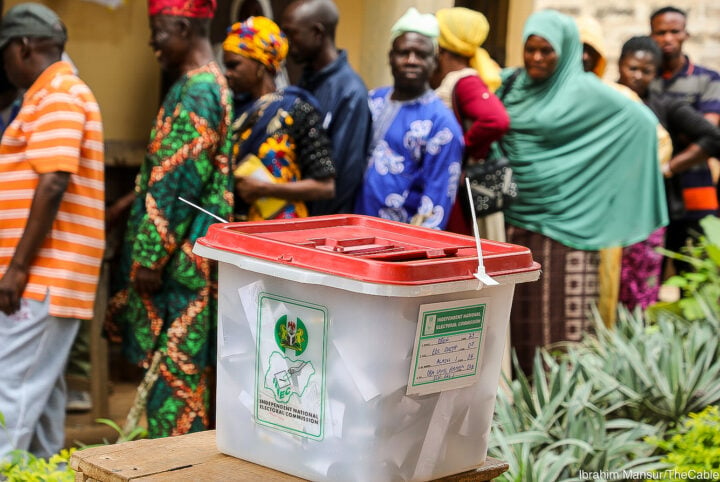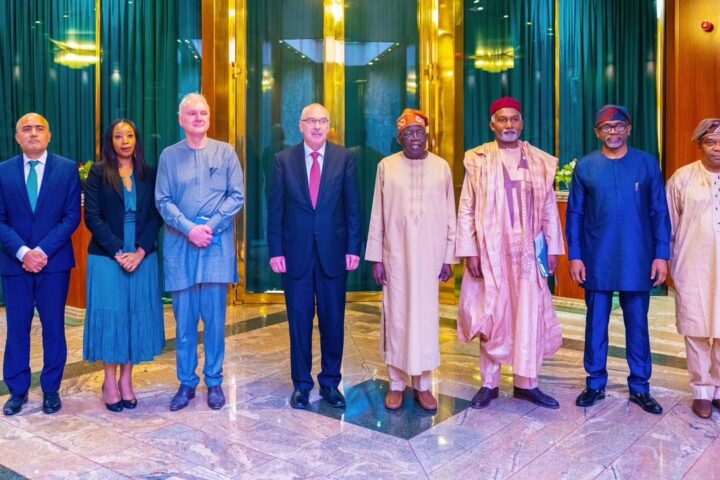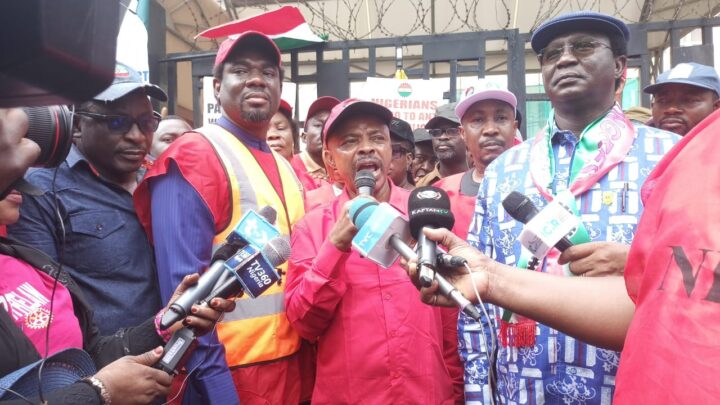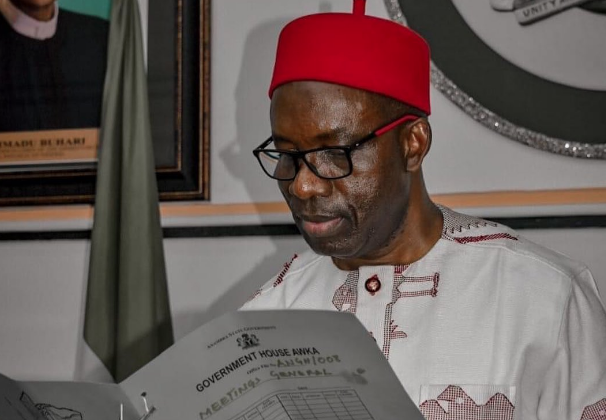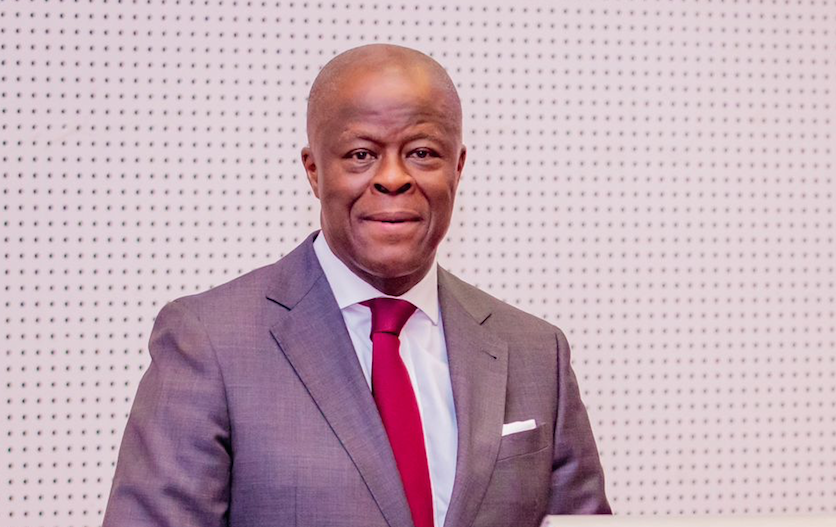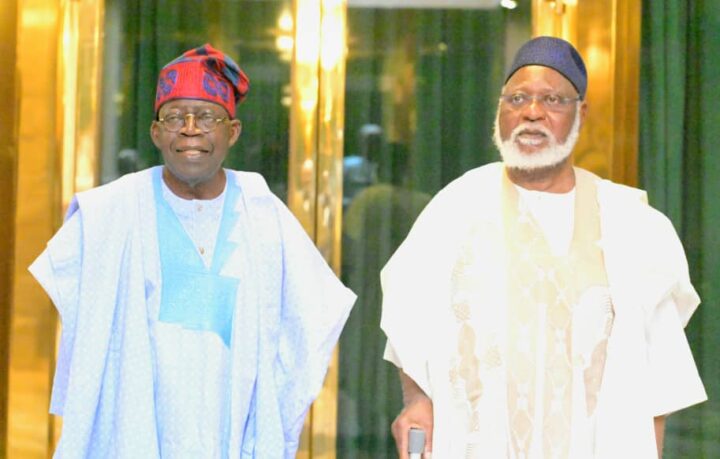In the build-up to the 2023 general election in Nigeria, a couple of unfamiliar news websites sprang up with the sole aim of dishing out several forms of disinformation to unsuspecting citizens.
The use of disinformation was highly weaponised as a political tool to sway voters in the recently concluded elections in Africa’s most populous country. The core of the strategy was discrediting political opponents with falsehood and advancing the candidacy of preferred politicians with the use of alternative reality.
In the post-election reports submitted to the Nigerian government by the European Union election observation mission, the foreign observers alleged that some top-ranking politicians “promoted information published by a suspicious website”, which went viral before it was debunked.
These websites engaged in the use of confirmation bias, cherry-picking information, emotional manipulation, conspiracy theories, selective framing, misleading headlines, out-of-context content, and adversarial journalism, in promoting their party and its candidates and of course, discrediting the opposition during the electioneering campaign.
Advertisement
Though the disinformation agenda started long before the elections, it essentially heightened shortly after the party primaries were concluded. Some of these news websites pretended to be churning out exclusive reports, analyses, and in some cases, fact checks lacking substance. But looking beyond the media gimmick is a clear attempt to drive certain preconceived political narratives.
TheCable monitored a few of the new “news websites” that played a key role during the 2023 election. They include; Lagos Today, Prose Nigeria, Gist Digest, IgboTimes Magazines, Podium Reporters, and InsideNews.
CHARACTERISTICS OF “FAKE NEWS” WEBSITES
Advertisement
1. Conspiracy theories: Many political disinformation websites propagate conspiracy theories that resonate with their target audience. These theories can be sensational and compelling, capturing people’s attention even when they lack credible evidence. While some of the new websites shared outright falsehood, others stretched the truth, and in some cases, a mix of both. Disinformation websites are also known for promoting photoshopped images and combining old photos with unrelated captions or events.
On February 12, Festus Keyamo, the minister for aviation and aerospace development, shared a news headline on X with a weblink to NigerianCheck, a digital newspaper established in July 2021.
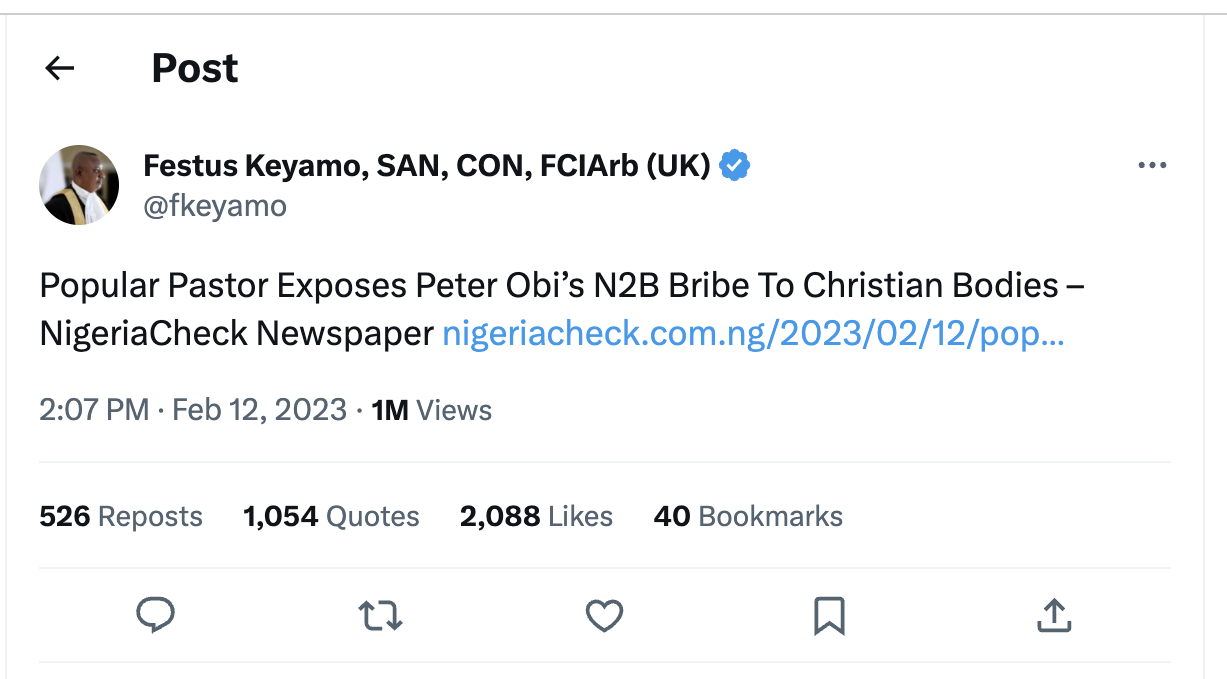
“Popular Pastor Exposes Peter Obi’s N2B Bribe To Christian Bodies,” reads the tweeted headline.
Advertisement
The two billion naira was said to have been gifted to Christian bodies to “help and assist in mobilising and convincing their congregation to vote massively for the candidacy of Mr. Peter Obi”.
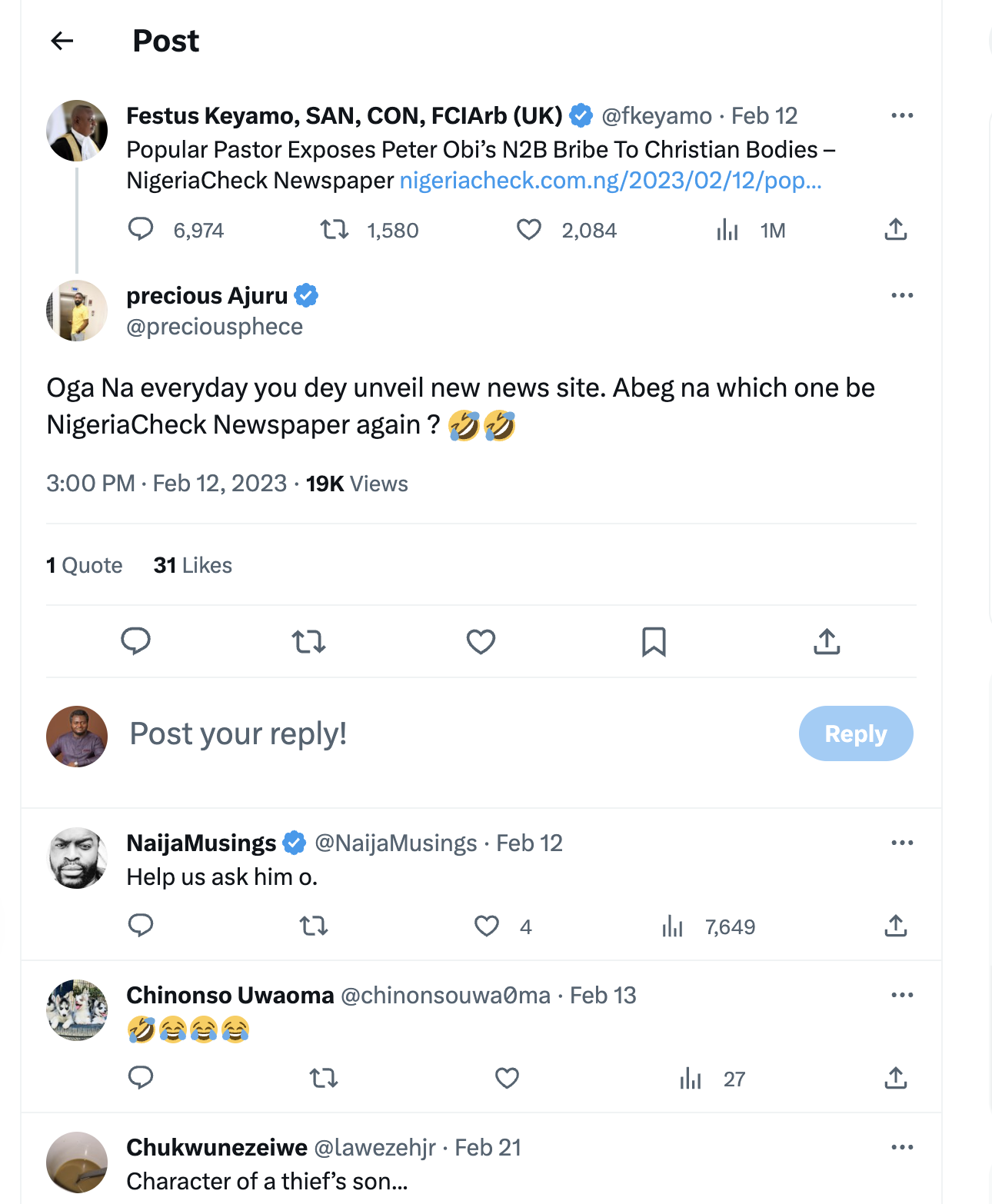
In response to the claim, the media office of the Labour Party (LP) said the claim was “concocted to tarnish the hard-earned reputation” of the party’s presidential candidate. The party described the news item as “blackmail stuff”, adding that the public should disregard it.
In addition, the Christian Association of Nigeria (CAN) said it is not aware of any two billion naira given to churches by Peter Obi, the presidential candidate of LP. The religious body added that the association is non-partisan and will not endorse or mobilise support for any candidate.
Advertisement
After the news was debunked, the story was later taken down on NigeriaCheck.
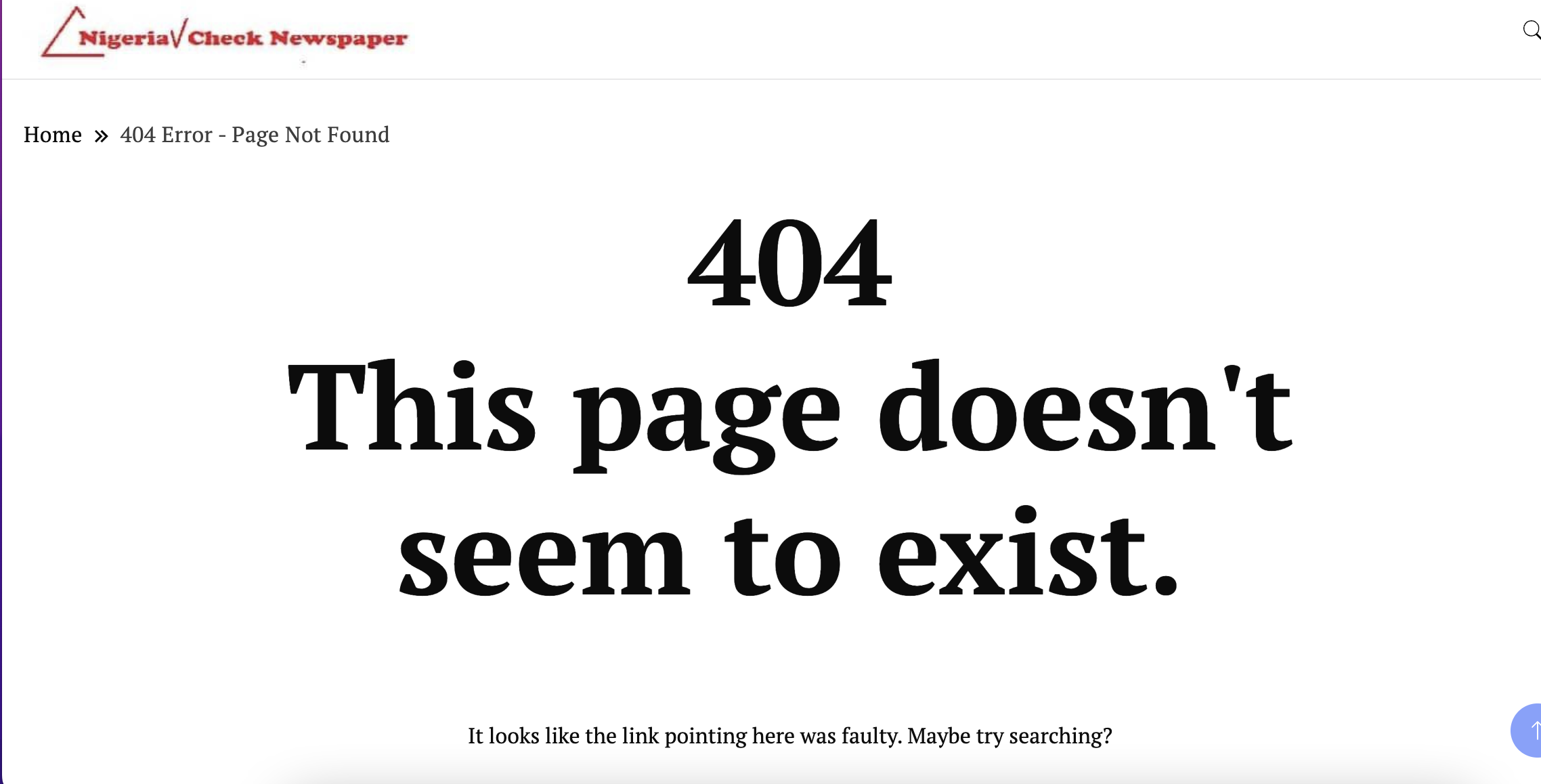
Advertisement
NigeriaCheck from its domain name could be mistaken for a fact-checking organisation, Reportera also pretended to be one. While the former was advancing pro-All Progressives Congress (APC) narratives, the latter drummed political support for Peter Obi and LP, through the pretentious vehicle of fact-checking.
2. Confirmation bias and emotional manipulation: Usually, these websites easily sway voters or individuals who already hold a particular political stance. By reinforcing existing beliefs, they also encourage confirmation bias, where people seek out and believe information that supports their preconceived notions, even if the information is false or misleading.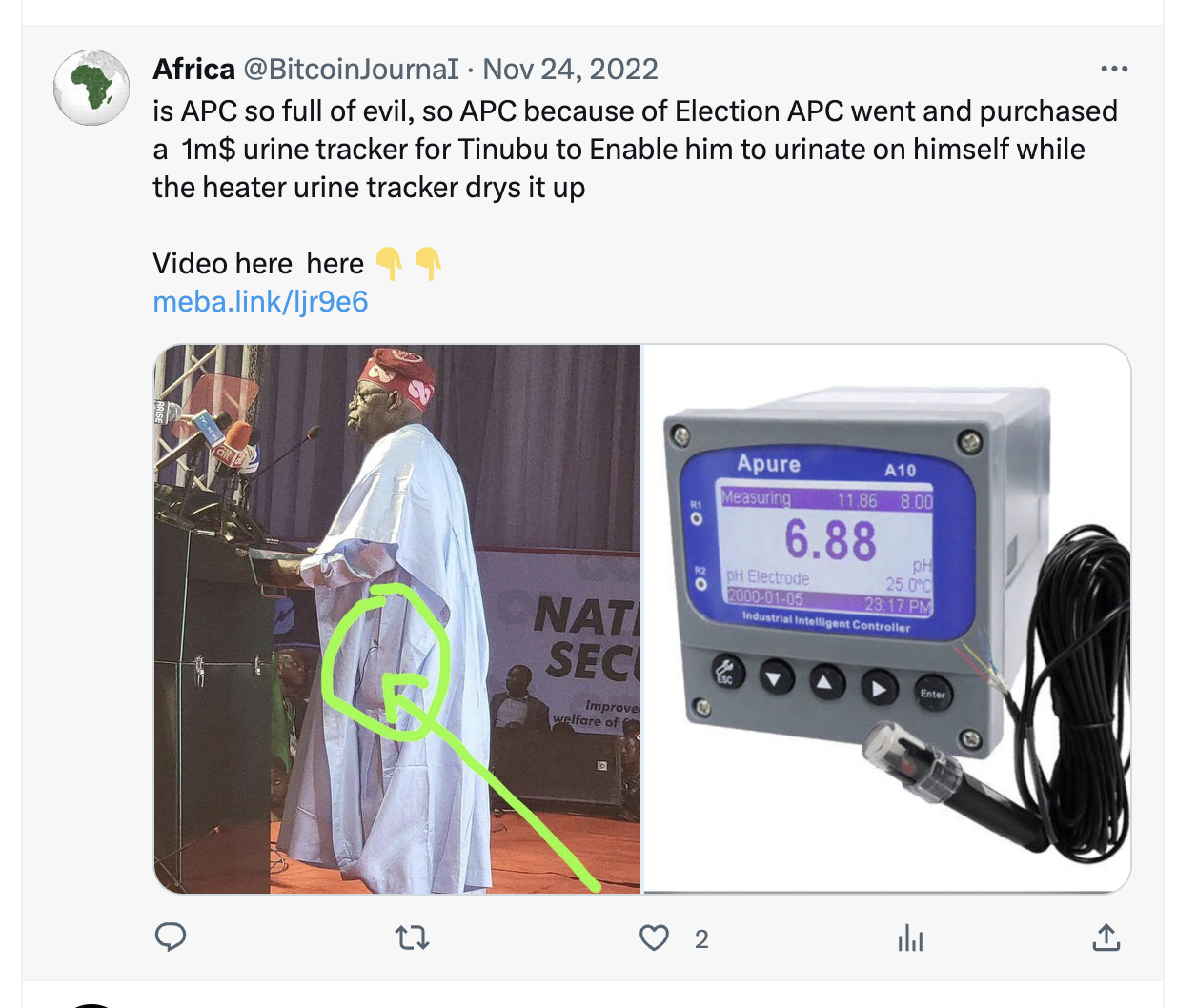
In addition, they employ emotional language, sensationalism, and provocative imagery to evoke strong emotional reactions in readers. When people are emotionally charged, they’re more likely to share information without fact-checking, which can lead to the rapid spread of misinformation.
Advertisement
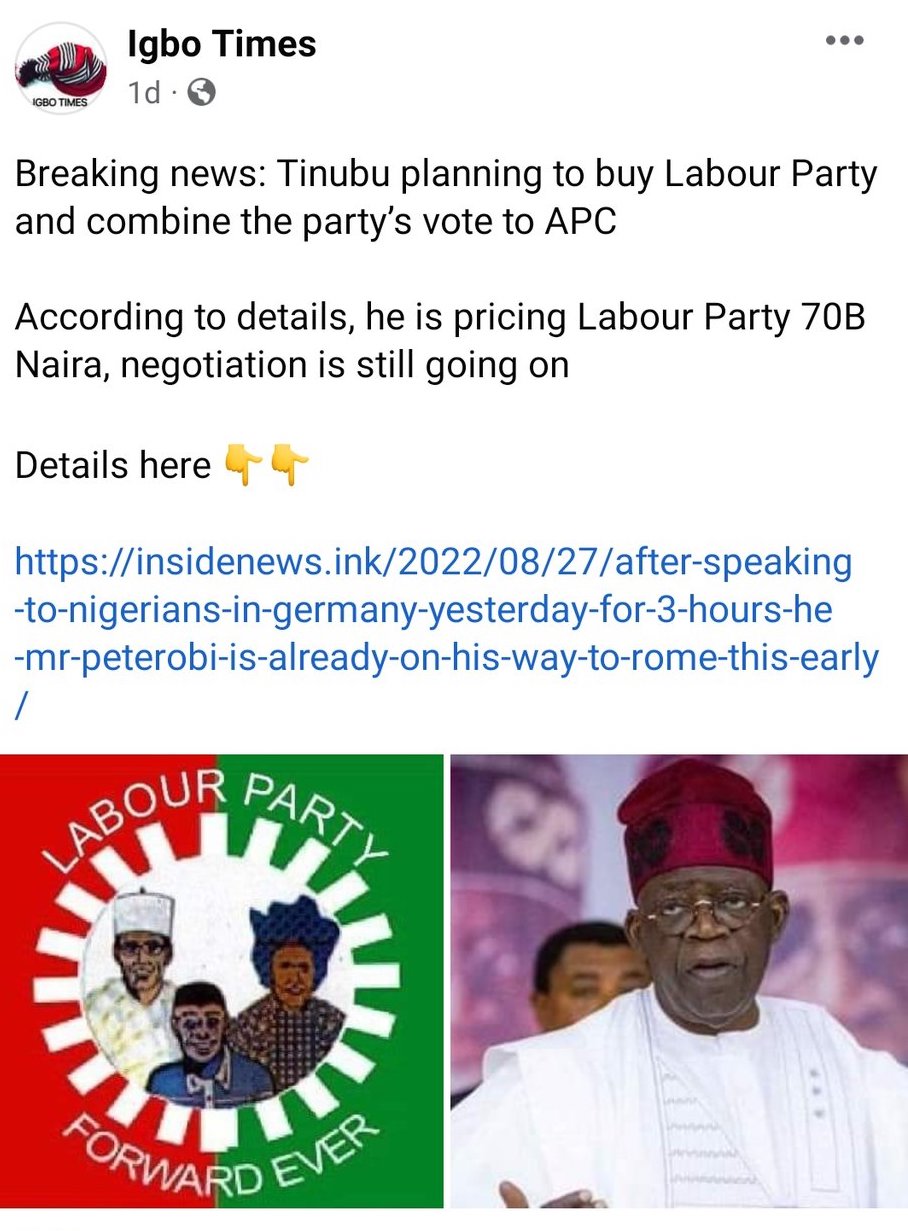
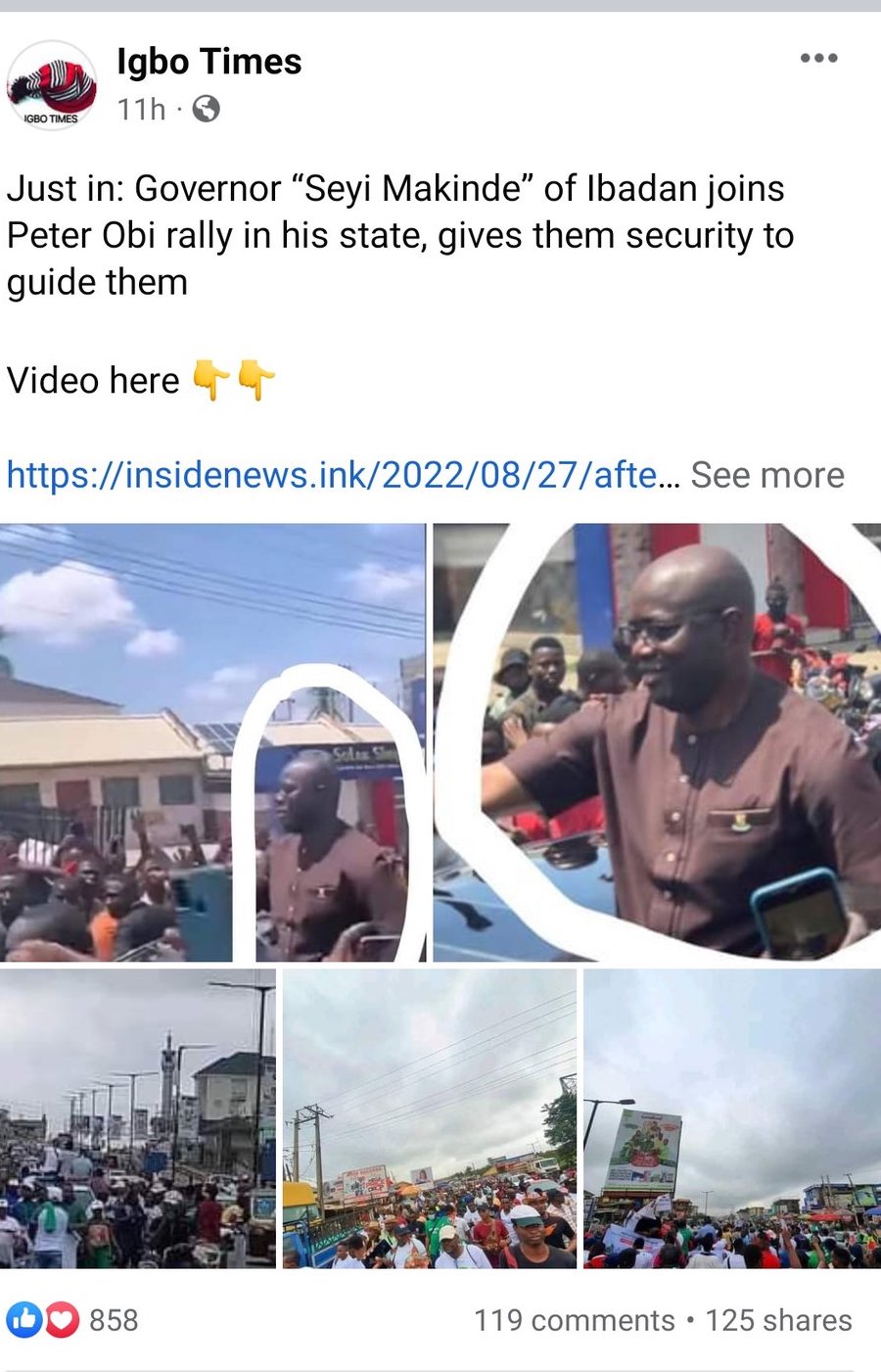
Advertisement
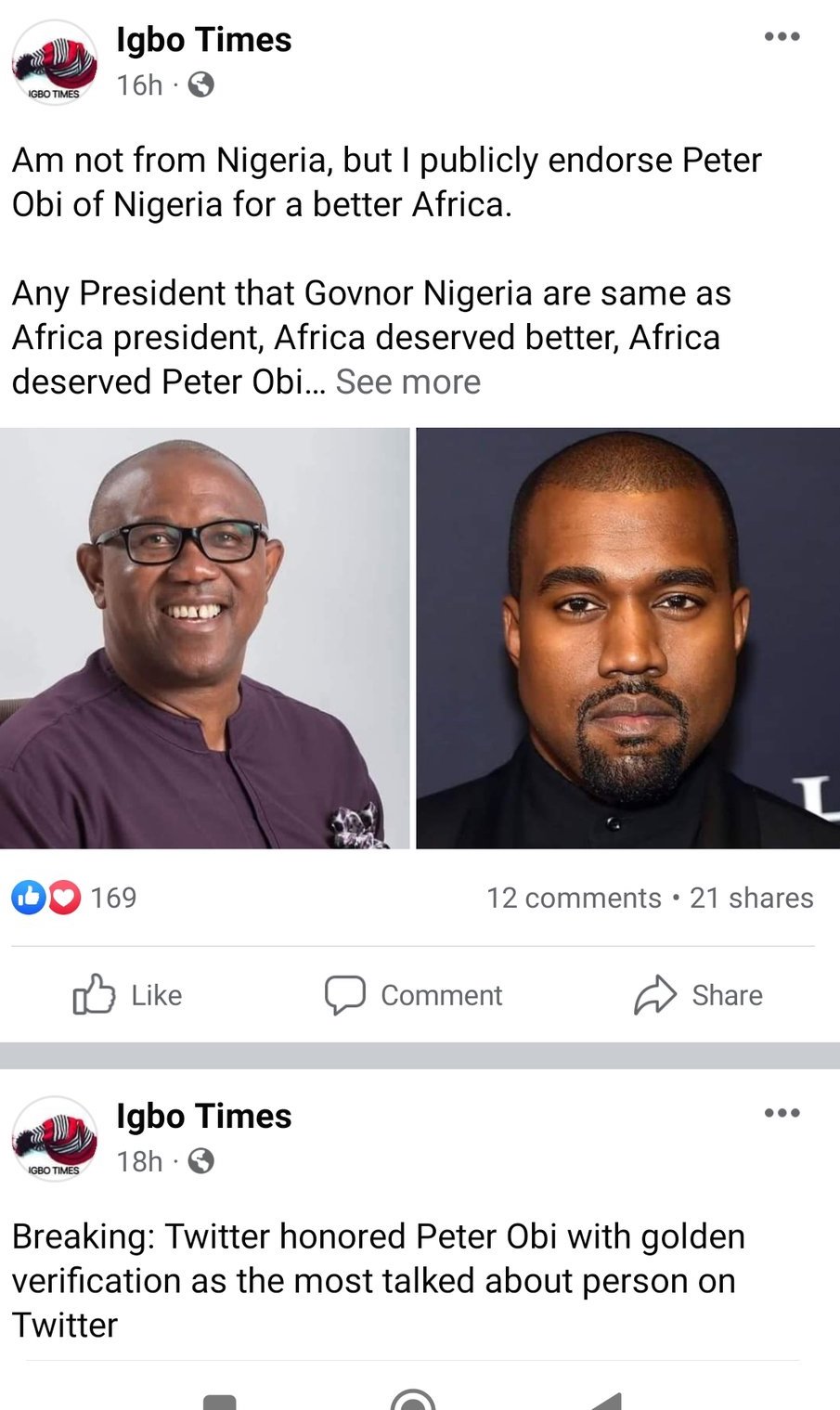
3. Lack of professionalism and ethics of journalism: Since they are not in operation to stand the test of time, values like professionalism and upholding the ethics of journalism are flagrantly neglected. Therefore, most of the published content is neither to educate nor benefit the public. They mainly focus on propaganda.
Detailed evaluation reveals that most of the content published as news items are either promoting a particular political party, organisation or public figure while maliciously speaking against others.
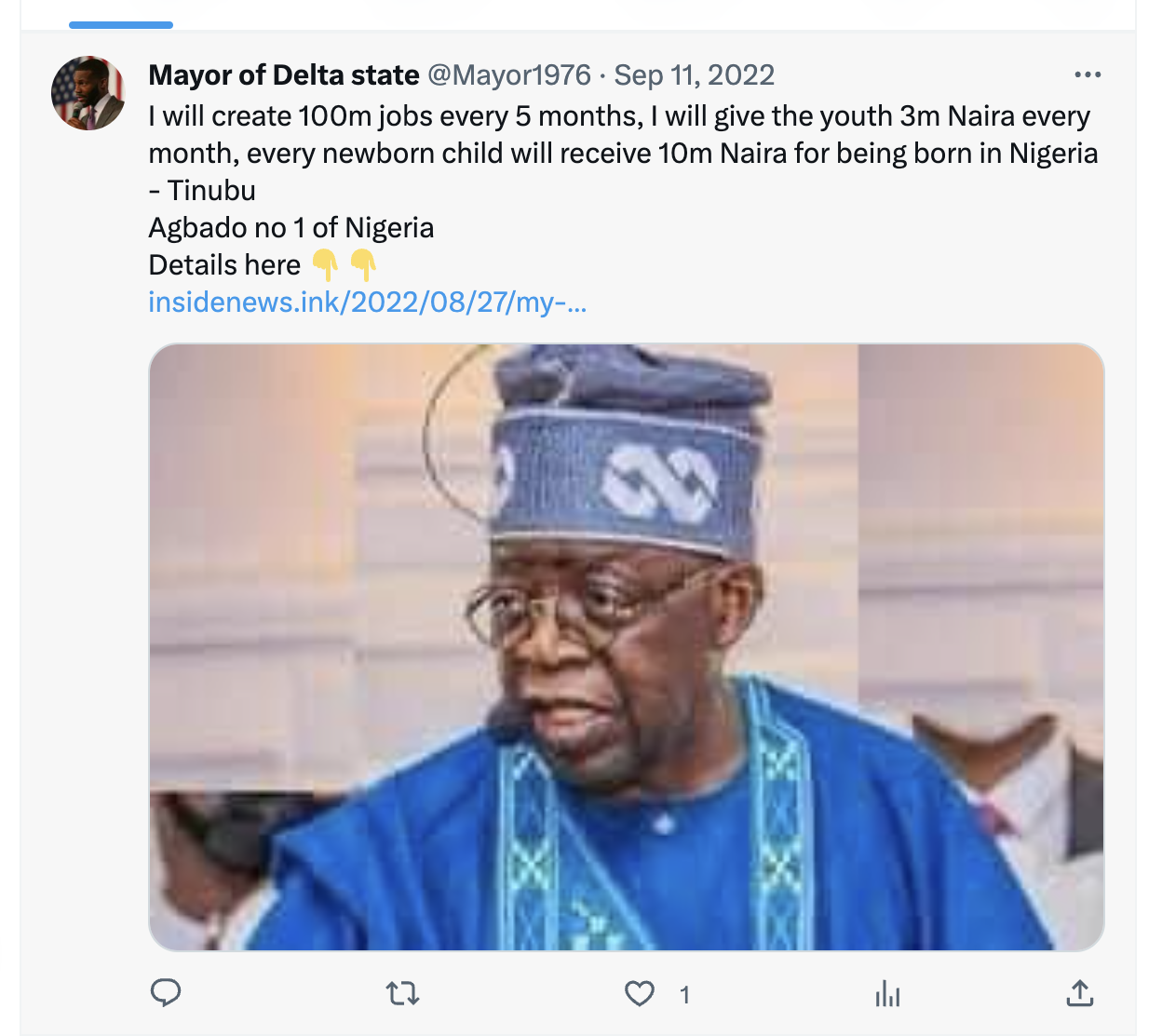
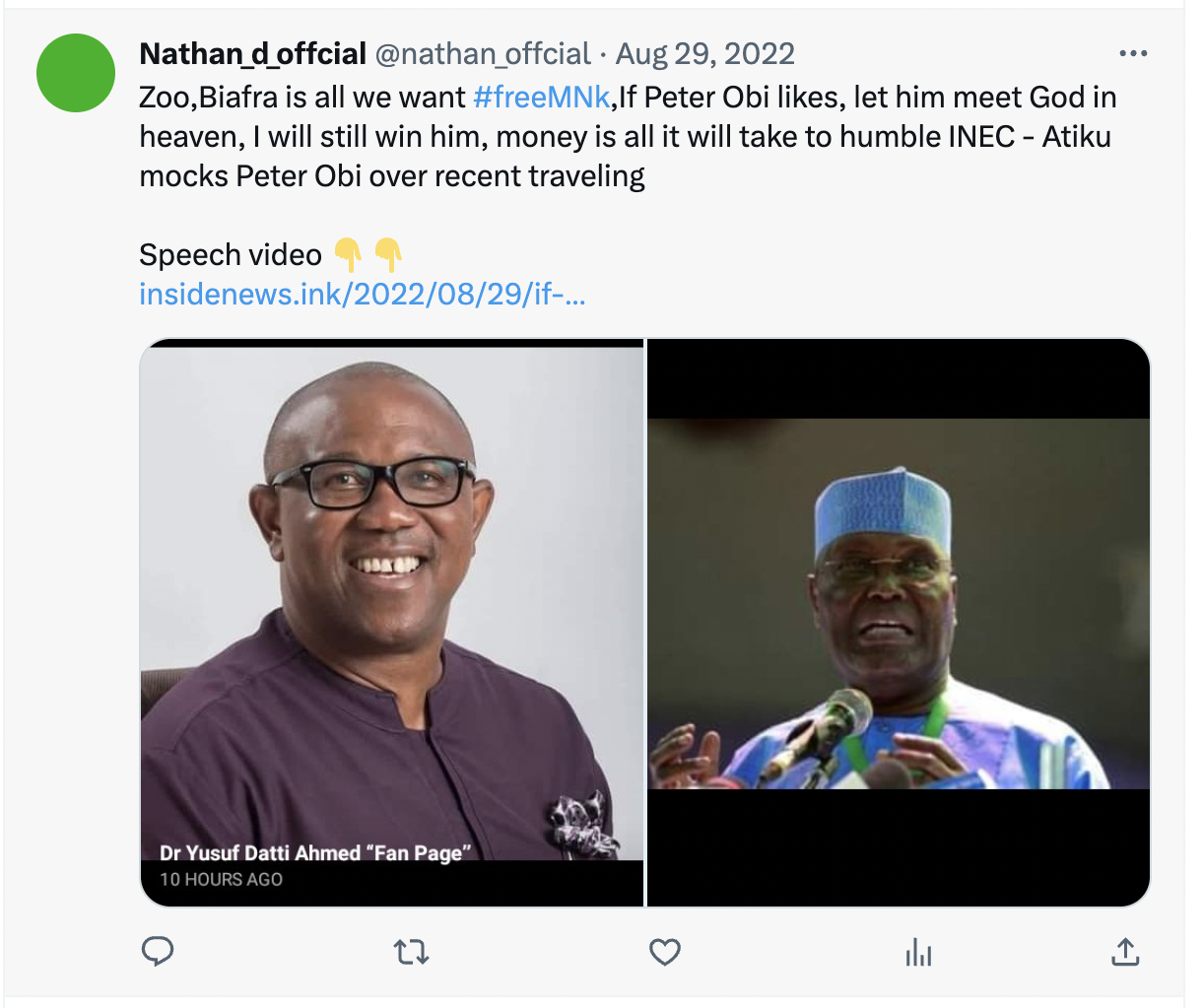
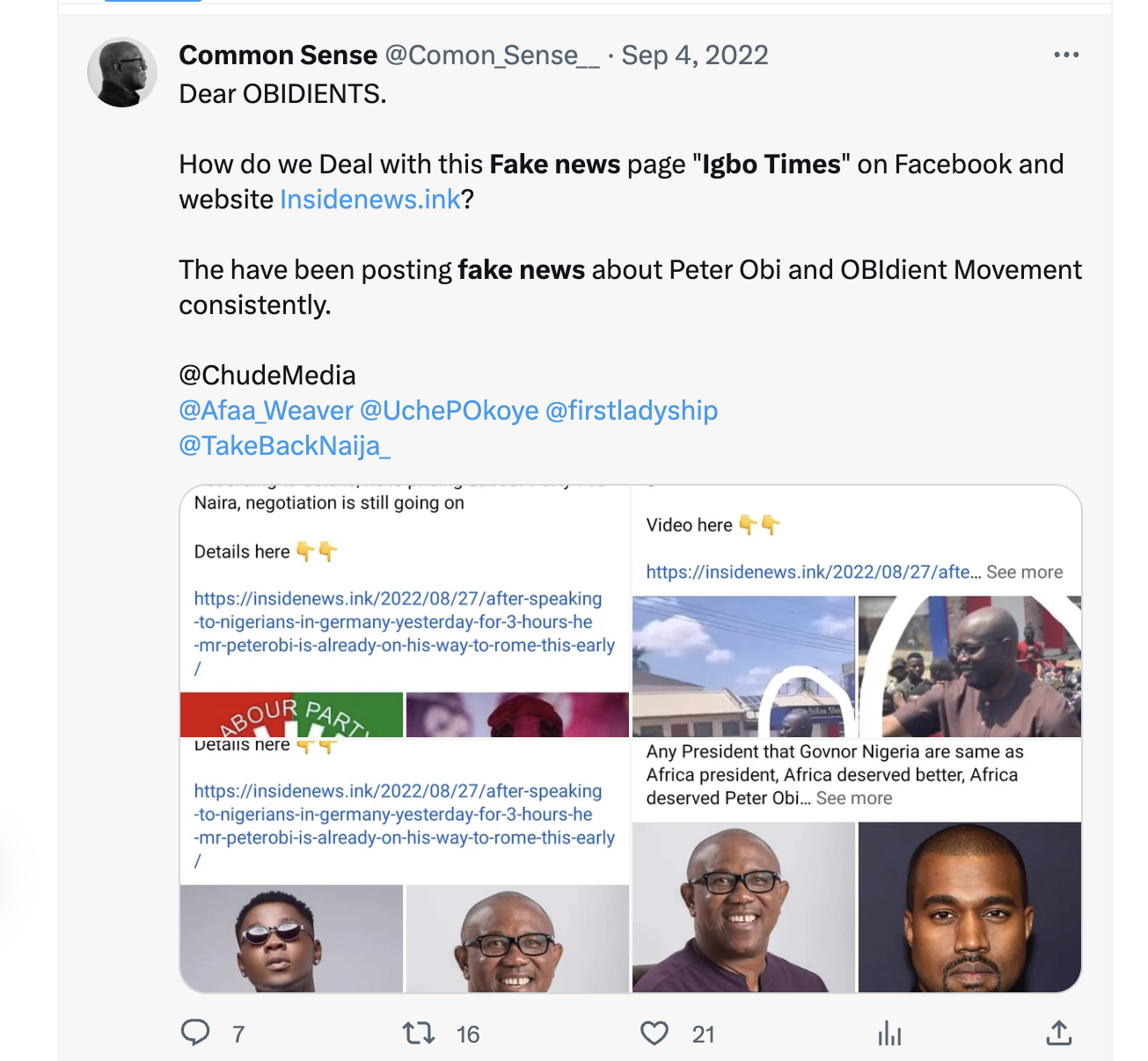
Findings by TheCable revealed that Igbo Times, via its social media pages, lead readers to misleading news items on InsideNews, another news website notorious for sharing disinformation. This shows collaboration between the two platforms to mislead the public with fake quotes, images, and video clips shared out of context.
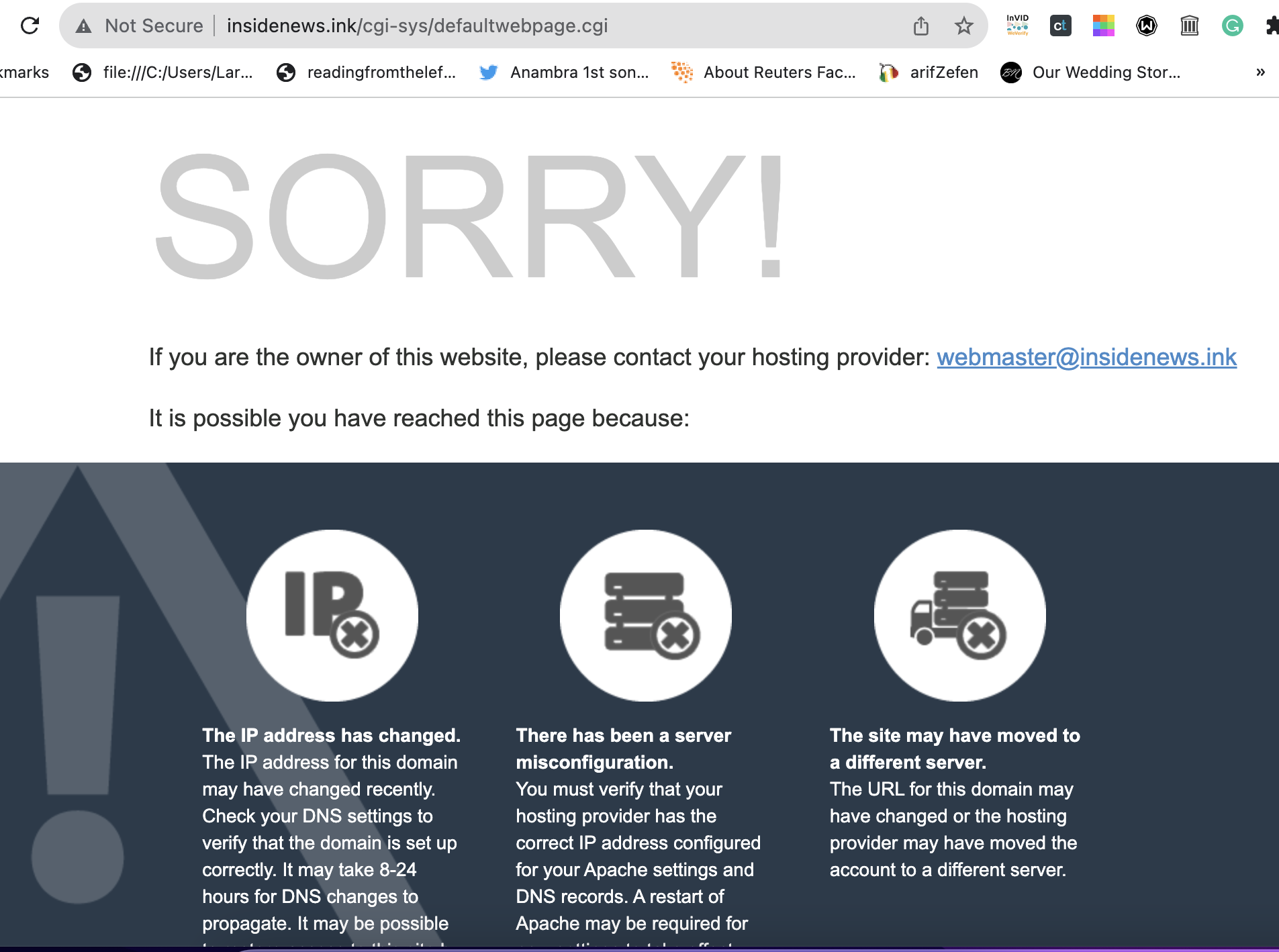
Cheeks revealed that InsideNews webpage was registered on August 27, 2022, and updated on September 1, 2022. As of the time of filing this report, the webpage has remained inactive, days before the August 27 expiry date of the domain. Some of the reasons the website is currently unavailable, as suggested in the error feedback include; a possible change of IP address, server misconfiguration, or the movement of the site to another server.
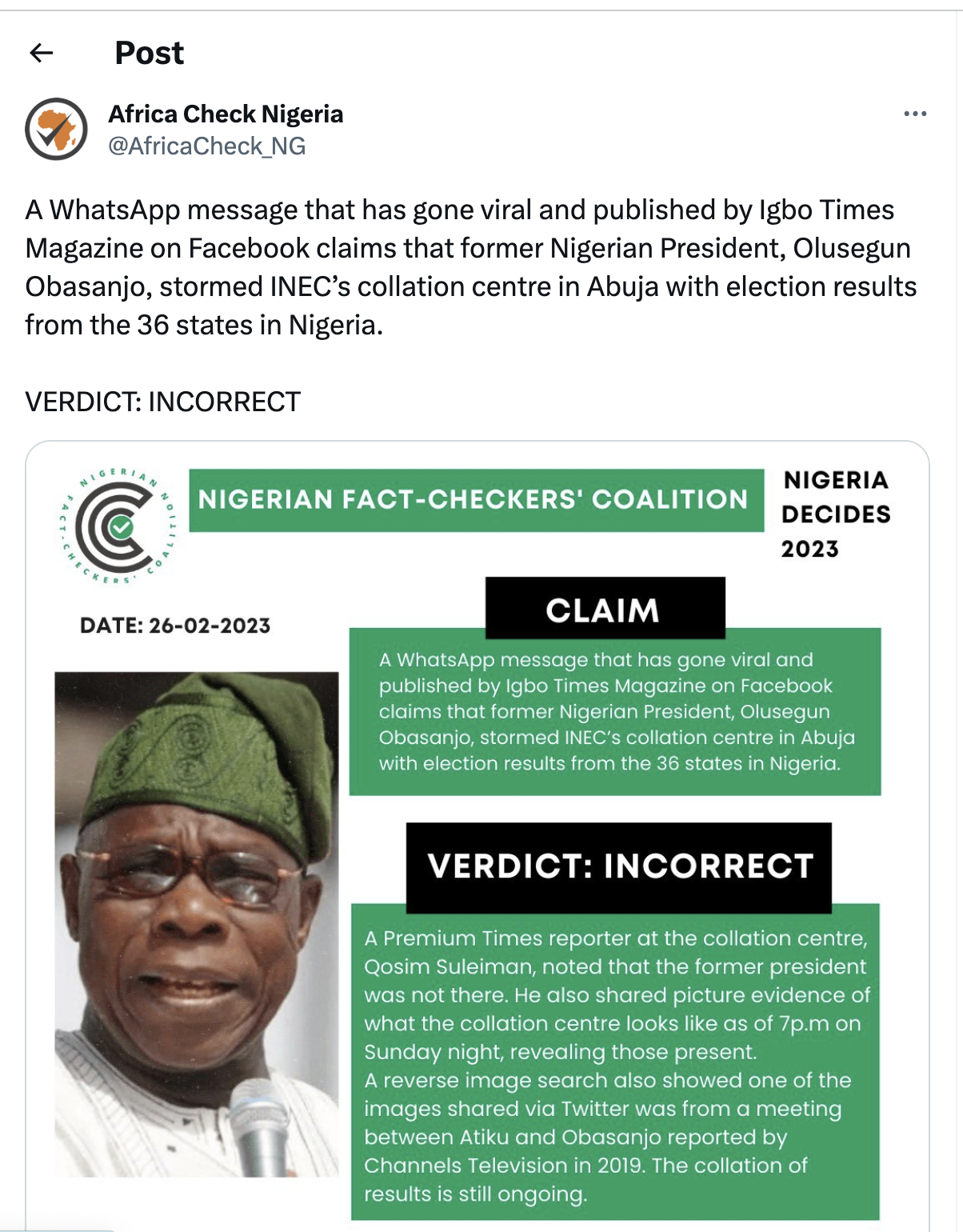
LIST OF NEWS WEBSITES THAT SHARED ELECTION-RELATED DISINFORMATION
| S/N | News Website | Presidential Candidate Supported | Date Created | Website Developer | Location of Developer |
|
|
IgboTimes Magazines | Peter Obi | November 2022 | Unknown | Iceland |
| 2. | NigeriaCheck | Bola Tinubu | July 2021 | Jude Chukwuemeka | Victoria Island, Lagos. |
| 3. | Reportera | Peter Obi | July 2022 | Reportera NG | Imo |
| 4. | Lagos Today | Bola Tinubu | January 2022 | Imonite
Aragbeyen |
Kaduna |
| 5. | Prose Nigeria | Atiku Abubakar | July 2022 | Unknown | Federal Capital Territory, Abuja. |
| 6. | Gist Digest | Peter Obi | September 2022 | Unknown | Federal Capital Territory, Abuja. |
| 7. | Podium Reporters | Bola Tinubu | Created earlier but repurposed in August 2022 | Unknown | United States |
| 8. | Inside News | Peter Obi | August 2022 | Unknown | Iceland |
POST-ELECTION DISINFORMATION CAMPAIGN
Many of the newly established digital news platforms that are functional are still actively propagating post-election disinformation.
Atiku Abubakar and Peter Obi, presidential candidates of the Peoples Democratic Party (PDP) and LP are at the tribunal seeking to overturn President Bola Ahmed Tinubu’s victory at the February 25 presidential election.
Tinubu emerged winner with 8,794,726 votes, ahead of Atiku Abubakar who scored 6,984,520 votes, and Peter Obi who got 6,101,533 votes.
On July 26, Igbo Times magazine reported that Tinubu had suspended all courts in the country due to fears of his disqualification.
The news platform alleged that the announcement was made through a statement where Tinubu stated that “he was suspending the courts in order to ‘protect the integrity of the electoral process and ensure the fairness of the upcoming election judgment’”.
The report added that Tinubu “uncovered evidence of widespread fraud in the judiciary”. Hence, the reason for his decision.
The purported statement was neither signed by the president, his spokespersons nor reported by any credible news media platform.
Contrary to the claim, the court proceedings which started with the pre-hearing session in May, had the last sitting on August 1.
The court is yet to decide on Obi and Atiku’s petition against Tinubu’s victory. The tribunal has reserved its judgment on both petitioners’ petitions and will hear both parties’ final addresses later in September.
Conclusively, observation shows that fake news websites boost traffic to their web pages with the aid of their social media platforms. Weblinks are usually shared on Facebook and X to numerous followers, who now amplify them either deliberately as actors of disinformation or as unsuspecting social media users.
This article was produced with mentorship from the African Academy for Open Source Investigations (AAOSI) to tackle disinformation that undermines our democracies, as part of an initiative by the International Centre for Journalists (ICFJ) and Code for Africa (CfA). Visit https://disinfo.africa/ for more information.

